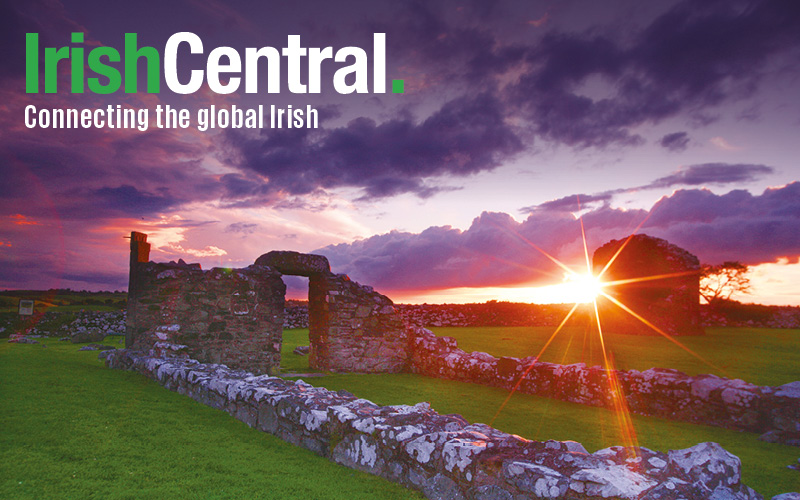For the month of March (also known as Irish American Heritage Month) IrishCentral is tapping into the heartbeat of the Irish American community. The Unsung Heroes series features inspiring individuals from across the US who do extraordinary work in their communities and respective fields. From advocates to artists, from local legends to dedicated educators; from a high school baseball team to dynamo nuns in their 80s, these people are making a difference and to them we tip our hats in thanks.
Each night, there are close to 52,000 homeless people in New York City’s shelter system – 22,000 of them children. That’s the highest level of homelessness in the city’s modern history.
One of their greatest sources of both advocacy and support is the Coalition for the Homeless, the nation’s longest-standing organization of its kind. It was founded in 1982 but dates back to 1979 when, in the landmark Callahan V. Carey lawsuit, the coalition’s founder Robert Hayes took New York to task for the clause in the state constitution that reads "The aid, care and support of the needy are public concerns and shall be provided by the state…”
For over 20 years, Coalition for the Homeless has been led by Mary Brosnahan, its executive director. Born in Denver, Colorado and raised in Dearborn, Michigan, she has Irish roots on both her Brosnahan side (which she is currently researching at the behest of her 11-year-old son, Quinn) and through her maternal O’Neill grandparents, both of whom emigrated from the Andersontown enclave of Belfast. She is also a graduate of Notre Dame.
After living and working in New York for a few years, Brosnahan joined the advance team for Michael Dukakis in the 1988 presidential election, traveling from state to state as the campaign progressed. When it was over, she returned to New York and settled in the East Village, taking a month off to figure out what her next steps would be.
“I really felt that I was at a turning point in my life and I wanted to do something that would yield true value after having led a pretty self-centered existence,” she recently explained. A park nearby her apartment was home to dozens of the city’s homeless, and through talking with them Brosnahan came to better understand the challenges they faced, from those who were looking for day labor to the severely mentally ill.
“The obscenity of people having to live on the streets really hit me,” she said. “It was a good thing to leave New York and come back to it because it made me realize how many, many people were living homeless on the streets here. It seemed unthinkable that so many people had so survive this way, and that there were so many different types of people suffering, because homelessness is so solvable. The quote from the Bible is ‘Jesus said the poor will always be with us.’ But that doesn’t mean they have to freeze to death on the streets.”
Her boyfriend at the time suggested she look into working with Coalition for the Homeless, and just a few months later Brosnahan was leading the New York office.
When she joined, CFH had 11 full time employees and a budget of 2 million. Now it has a full time staff of close to 80, a budget of 11 million and helps over 3,500 people each day.
“We’ve grown our direct service component greatly,” she emphasized. “When people think of the coalition they mostly think about the advocacy work we do, but we feed 1,000 people every night on the street; we have an amazing after school program and summer sleep away camp for kids; we offer immediate crisis counseling, permanent housing options, job training, a whole wide range. And that is what, I think, has kept our advocacy so vibrant and relevant, that we are out on the streets and trying to be a megaphone for what New Yorkers are directly encountering.”
Today, that megaphone is more important than ever with homelessness is at all-time high – largely, many believe, thanks to the elimination of affordable housing funding and alternatives under the Bloomberg administration, which led to a dramatic increase in the number of people in the city’s shelter system. It currently costs the city upwards of $3,000 a month to keep a family in a shelter. With a new mayor in office, Brosnahan is hopeful that some of those policies will change back to the more effective measures of the Koch and Dinkins administrations.
“Their main method for getting people out of the shelter system was through giving them priority to federal benefits, Section 8 housing, etc.,” she explained. “Back in 2005 Bloomberg ended that, and that’s when we started to see the massive increase. So it’s really just a matter of getting back to what’s been proven to work, it’s not a matter of rocket science. Right now as the governor and mayor spar to put together their budgets we hope to get a city-state agreement to send both capital investment and rental assistance through public housing.”
To learn more about Brosnahan and the CFH, visit their website. There, you can also find information about volunteer opportunities, such as joining the nightly drive throughout the city to hand out food to over 1,000 individuals and families.
To read about yesterday's unsung hero, 14-year-old Irish American cowboy Tommy Patrick, click here.




Comments